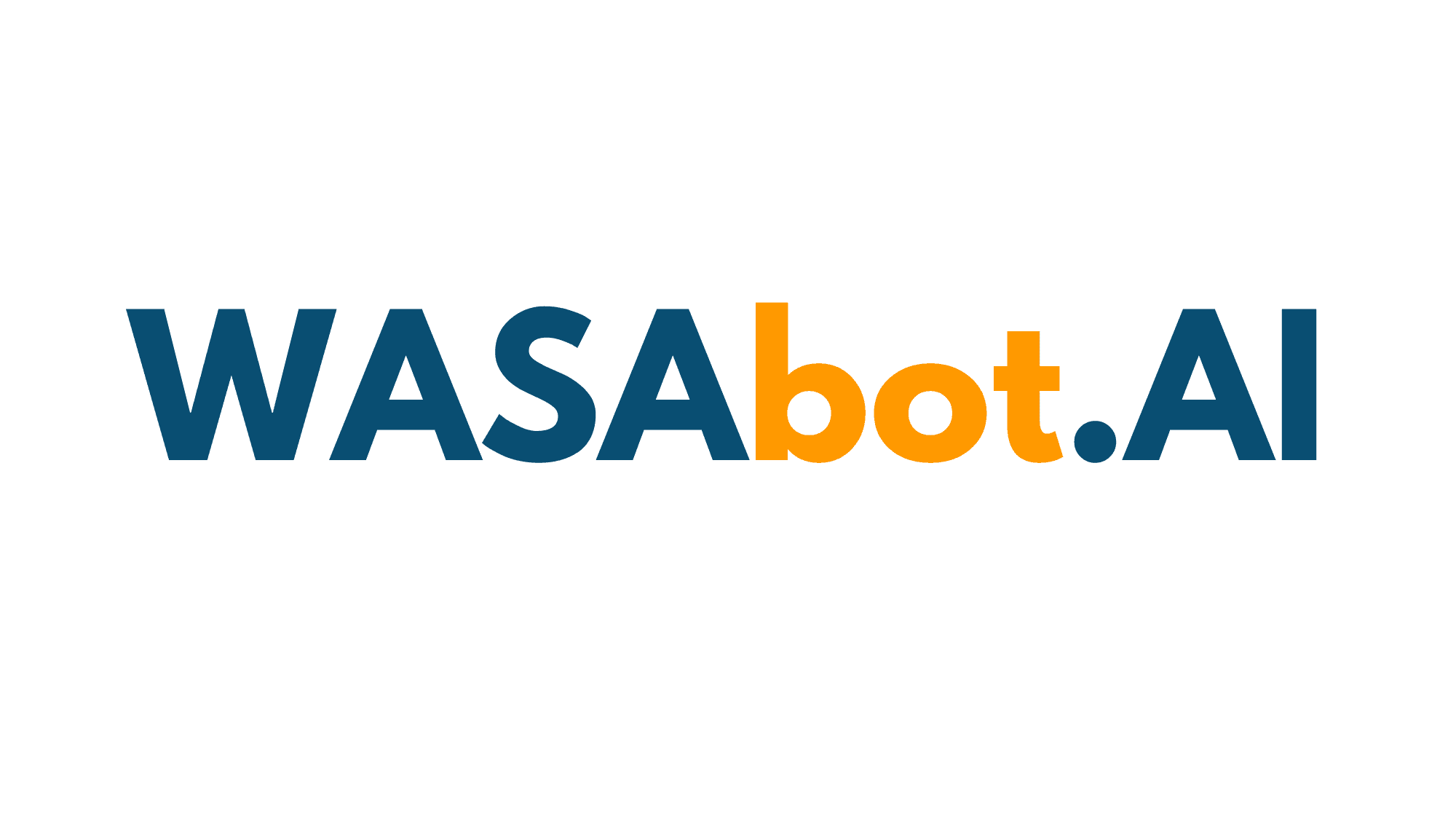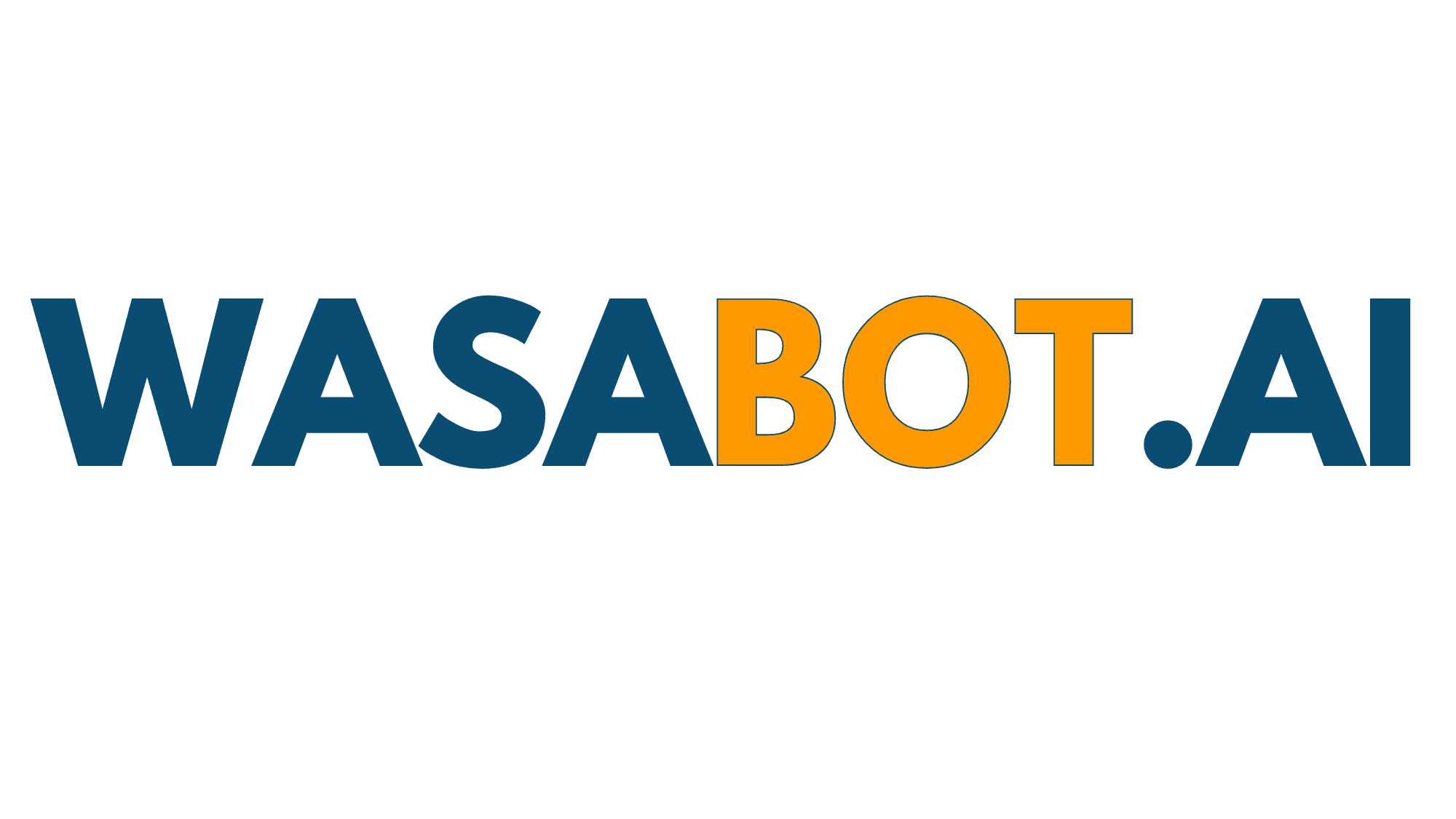


Your “go-to” for prompts, custom chatbots, training, resources, and the latest AI news.
Your “go-to” for prompts, custom chatbots, training, resources, and the latest AI news.
Your “go-to” for prompts, custom chatbots, training, resources, and the latest AI news.
Your “go-to” for prompts, custom chatbots, training, resources, and the latest AI news.
Your “go-to” for prompts, custom chatbots, training, resources, and the latest AI news.
Your “go-to” for prompts, custom chatbots, training, resources, and the latest AI news.
WASAbot.AI is not compatable with mobile devices. Please switch to a desktop, laptop or tablet to view.


Your “go-to” for prompts, custom chatbots, training, resources, and the latest AI news.
AI news for busy administrators!


From Cheat to Champion: How ChatGPT Saves Teachers Time
Artificial intelligence in schools has evolved drastically: once seen as a cheating risk, ChatGPT and similar tools are now valued by educators as time-saving allies. A recent Associated Press report cites a Gallup and Walton Family Foundation survey showing that 60% of U.S. K–12 public school teachers used AI tools during the 2024–2025 school year—and regular users estimate they save up to six hours per week on tasks like lesson planning, grading, and administrative work Vox+11Business Insider+11Boyle Heights Beat+11THE DECODER+4AP News+4NBC Chicago+4.
This shift is part of a broader movement. Many teachers—from Ana Sepúlveda in Dallas to Mary McCarthy in Houston—now turn to AI to craft creative, personalized lessons and regain work-life balance Courthouse News+5AP News+5cambiadigital.com+5. Wired reports that educators are leveraging AI for quizzes, differentiated materials, and content adaptation, especially to support diverse learning needs Axios+15wired.com+15Jagranjosh.com+15. States are beginning to roll out guidelines and training to ensure AI is used ethically and complements, rather than replaces, teacher judgment AP News+2Inc.com+2.
For educational leaders, the message is clear: it's time to shift from banning to embracing—but with intentional policies, professional development, and a focus on preserving student critical thinking. Teachers deserve tools that amplify their impact while respecting the essence of teaching.
OpenAI's most recent updates to ChatGPT are reshaping how educational administrators can leverage AI to streamline operations, enhance stakeholder communication, and improve decision-making. These upgrades include advanced web browsing capabilities, GPT customization, multimodal inputs, and a new focus on providing transparent sourcing—features that transform educational institutions.
Dynamic Web Browsing for Real-Time Insights
One standout feature of the latest ChatGPT is its ability to access and retrieve information from the internet. This allows administrators to conduct real-time research, gather accurate data, and quickly generate insights without relying solely on preprogrammed knowledge. For instance, administrators can use the browsing feature to stay updated on education policy changes or research comparable institutions'




Prompt Of The Week
You are an expert teacher who embraces technology and is also concerned about the potential of students over relying on AI and not gaining the core skills needed. Create a list of 10 things a teacher can do to ensure assignments are completed by students not AI.


Chat GPT



Gen Z and AI: A Cautious Embrace in America's Classrooms
Artificial intelligence in schools has evolved drastically: once seen as a cheating risk, ChatGPT and similar tools are now valued by educators as time-saving allies. A recent Associated Press report cites a Gallup and Walton Family Foundation survey showing that 60% of U.S. K–12 public school teachers used AI tools during the 2024–2025 school year—and regular users estimate they save up to six hours per week on tasks like lesson planning, grading, and administrative work Vox+11Business Insider+11Boyle Heights Beat+11THE DECODER+4AP News+4NBC Chicago+4.
This shift is part of a broader movement. Many teachers—from Ana Sepúlveda in Dallas to Mary McCarthy in Houston—now turn to AI to craft creative, personalized lessons and regain work-life balance Courthouse News+5AP News+5cambiadigital.com+5. Wired reports that educators are leveraging AI for quizzes, differentiated materials, and content adaptation, especially to support diverse learning needs Axios+15wired.com+15Jagranjosh.com+15. States are beginning to roll out guidelines and training to ensure AI is used ethically and complements, rather than replaces, teacher judgment AP News+2Inc.com+2.
For educational leaders, the message is clear: it's time to shift from banning to embracing—but with intentional policies, professional development, and a focus on preserving student critical thinking. Teachers deserve tools that amplify their impact while respecting the essence of teaching.
AI news for busy administrators!
As AI tools like ChatGPT and Grammarly become increasingly common in classrooms, a new Gallup survey reveals a striking paradox: while Gen Z students recognize the importance of AI skills for their future, many are deeply uneasy about its role in their education. According to the report, 40% of students aged 12 to 26 feel anxious about using AI, and nearly half believe it could diminish their critical thinking abilities.
This discomfort seems to stem from a lack of clarity in school policies. Only 28% of students say their schools have explicitly allowed AI usage, leading others to either avoid it altogether or use it cautiously. Yet 44% agree that understanding AI will be crucial for their careers, suggesting a disconnect between institutional readiness and student needs. The data shows that many students are interested in AI tools but feel constrained by either unclear guidelines or ethical concerns.
For educational leaders, this is a wake-up call. As AI continues to reshape the learning landscape, districts must prioritize clear, inclusive policies that foster AI literacy without compromising critical thinking. Students need guidance, not just on how to use AI tools, but on when and why. Providing this direction will ensure that Gen Z is not only AI-

AI news for busy administrators!

From Cheat to Champion: How ChatGPT Saves Teachers Time
Artificial intelligence in schools has evolved drastically: once seen as a cheating risk, ChatGPT and similar tools are now valued by educators as time-saving allies. A recent Associated Press report cites a Gallup and Walton Family Foundation survey showing that 60% of U.S. K–12 public school teachers used AI tools during the 2024–2025 school year—and regular users estimate they save up to six hours per week on tasks like lesson planning, grading, and administrative work Vox+11Business Insider+11Boyle Heights Beat+11THE DECODER+4AP News+4NBC Chicago+4.
This shift is part of a broader movement. Many teachers—from Ana Sepúlveda in Dallas to Mary McCarthy in Houston—now turn to AI to craft creative, personalized lessons and regain work-life balance Courthouse News+5AP News+5cambiadigital.com+5. Wired reports that educators are leveraging AI for quizzes, differentiated materials, and content adaptation, especially to support diverse learning needs Axios+15wired.com+15Jagranjosh.com+15. States are beginning to roll out guidelines and training to ensure AI is used ethically and complements, rather than replaces, teacher judgment AP News+2Inc.com+2.
For educational leaders, the message is clear: it's time to shift from banning to embracing—but with intentional policies, professional development, and a focus on preserving student critical thinking. Teachers deserve tools that amplify their impact while respecting the essence of teaching.


Prompt Of The Week
You are an expert teacher who embraces technology and is also concerned about the potential of students over relying on AI and not gaining the core skills needed. Create a list of 10 things a teacher can do to ensure assignments are completed by students not AI.

Chat GPT


From Cheat to Champion: How ChatGPT Saves Teachers Time
Artificial intelligence in schools has evolved drastically: once seen as a cheating risk, ChatGPT and similar tools are now valued by educators as time-saving allies. A recent Associated Press report cites a Gallup and Walton Family Foundation survey showing that 60% of U.S. K–12 public school teachers used AI tools during the 2024–2025 school year—and regular users estimate they save up to six hours per week on tasks like lesson planning, grading, and administrative work Vox+11Business Insider+11Boyle Heights Beat+11THE DECODER+4AP News+4NBC Chicago+4.
This shift is part of a broader movement. Many teachers—from Ana Sepúlveda in Dallas to Mary McCarthy in Houston—now turn to AI to craft creative, personalized lessons and regain work-life balance Courthouse News+5AP News+5cambiadigital.com+5. Wired reports that educators are leveraging AI for quizzes, differentiated materials, and content adaptation, especially to support diverse learning needs Axios+15wired.com+15Jagranjosh.com+15. States are beginning to roll out guidelines and training to ensure AI is used ethically and complements, rather than replaces, teacher judgment AP News+2Inc.com+2.
For educational leaders, the message is clear: it's time to shift from banning to embracing—but with intentional policies, professional development, and a focus on preserving student critical thinking. Teachers deserve tools that amplify their impact while respecting the essence of teaching.
AI news for busy administrators!
As AI tools like ChatGPT and Grammarly become increasingly common in classrooms, a new Gallup survey reveals a striking paradox: while Gen Z students recognize the importance of AI skills for their future, many are deeply uneasy about its role in their education. According to the report, 40% of students aged 12 to 26 feel anxious about using AI, and nearly half believe it could diminish their critical thinking abilities.
This discomfort seems to stem from a lack of clarity in school policies. Only 28% of students say their schools have explicitly allowed AI usage, leading others to either avoid it altogether or use it cautiously. Yet 44% agree that understanding AI will be crucial for their careers, suggesting a disconnect between institutional readiness and student needs. The data shows that many students are interested in AI tools but feel constrained by either unclear guidelines or ethical concerns.
For educational leaders, this is a wake-up call. As AI continues to reshape the learning landscape, districts must prioritize clear, inclusive policies that foster AI literacy without compromising critical thinking. Students need guidance, not just on how to use AI tools, but on when and why. Providing this direction will ensure that Gen Z is not only AI-

AI news for busy administrators!

From Cheat to Champion: How ChatGPT Saves Teachers Time
Artificial intelligence in schools has evolved drastically: once seen as a cheating risk, ChatGPT and similar tools are now valued by educators as time-saving allies. A recent Associated Press report cites a Gallup and Walton Family Foundation survey showing that 60% of U.S. K–12 public school teachers used AI tools during the 2024–2025 school year—and regular users estimate they save up to six hours per week on tasks like lesson planning, grading, and administrative work Vox+11Business Insider+11Boyle Heights Beat+11THE DECODER+4AP News+4NBC Chicago+4.
This shift is part of a broader movement. Many teachers—from Ana Sepúlveda in Dallas to Mary McCarthy in Houston—now turn to AI to craft creative, personalized lessons and regain work-life balance Courthouse News+5AP News+5cambiadigital.com+5. Wired reports that educators are leveraging AI for quizzes, differentiated materials, and content adaptation, especially to support diverse learning needs Axios+15wired.com+15Jagranjosh.com+15. States are beginning to roll out guidelines and training to ensure AI is used ethically and complements, rather than replaces, teacher judgment AP News+2Inc.com+2.
For educational leaders, the message is clear: it's time to shift from banning to embracing—but with intentional policies, professional development, and a focus on preserving student critical thinking. Teachers deserve tools that amplify their impact while respecting the essence of teaching.


Prompt Of The Week
You are an expert teacher who embraces technology and is also concerned about the potential of students over relying on AI and not gaining the core skills needed. Create a list of 10 things a teacher can do to ensure assignments are completed by students not AI.

Chat GPT


AI Opens New Doors for Dyslexic Students, Says UK Tech Secretary
Artificial intelligence in schools has evolved drastically: once seen as a cheating risk, ChatGPT and similar tools are now valued by educators as time-saving allies. A recent Associated Press report cites a Gallup and Walton Family Foundation survey showing that 60% of U.S. K–12 public school teachers used AI tools during the 2024–2025 school year—and regular users estimate they save up to six hours per week on tasks like lesson planning, grading, and administrative work Vox+11Business Insider+11Boyle Heights Beat+11THE DECODER+4AP News+4NBC Chicago+4.
This shift is part of a broader movement. Many teachers—from Ana Sepúlveda in Dallas to Mary McCarthy in Houston—now turn to AI to craft creative, personalized lessons and regain work-life balance Courthouse News+5AP News+5cambiadigital.com+5. Wired reports that educators are leveraging AI for quizzes, differentiated materials, and content adaptation, especially to support diverse learning needs Axios+15wired.com+15Jagranjosh.com+15. States are beginning to roll out guidelines and training to ensure AI is used ethically and complements, rather than replaces, teacher judgment AP News+2Inc.com+2.
For educational leaders, the message is clear: it's time to shift from banning to embracing—but with intentional policies, professional development, and a focus on preserving student critical thinking. Teachers deserve tools that amplify their impact while respecting the essence of teaching.
AI news for busy administrators!

Chatbots
RCWS & WAC Bot
Search for pertinent laws Compares uploaded policies with current RCWs and WACs Provides legal references citations for correspondence
RCWS & WAC Bot
Search for pertinent laws Compares uploaded policies with current RCWs and WACs Provides legal references citations for correspondence
Quality Teacher Feedback Bot
Writes a DRAFT teacher feedback report aligned with uploaded notes and the selected instructional framework. Provides a list of questions to guide a meaningful, growth-focused coaching conversation with the teacher. Suggests teacher self-reflection questions.
Quality Teacher Feedback Bot
Writes a DRAFT teacher feedback report aligned with uploaded notes and the selected instructional framework. Provides a list of questions to guide a meaningful, growth-focused coaching conversation with the teacher. Suggests teacher self-reflection questions.






Supporting Student Behavior Bot
Suggests developmentally appropriate strategies and instruction. Provides the relevant RCWs, WACs, state and federal guidance.
Supporting Student Behavior Bot
Suggests developmentally appropriate strategies and instruction. Provides the relevant RCWs, WACs, state and federal guidance.
Supporting Student Behavior Bot
Suggests developmentally appropriate strategies and instruction. Provides the relevant RCWs, WACs, state and federal guidance.
Quality Principal Feedback Bot
Writes a DRAFT principal feedback report aligned with upload notes and leadership framework Provides a list of questions to guide a meaningful, growth-focused coaching conversation with the leader Suggests principal self-reflections questions




Quality Principal Feedback Bot
Writes a DRAFT principal feedback report aligned with uploaded notes and the leadership framework. Provides a list of questions to guide a meaningful, growth-focused coaching conversation with the leader. Suggests principal self-reflection questions.
Chatbots
RCW & WAC Bot
Navigates the legal parameters of Washington's K-12 system by searching relevant language found in the Revised Code of Washington (RCW) and Washington Administrative Code (WAC).
Quality Teacher Feedback Bot
Writes a DRAFT teacher feedback report aligned with uploaded notes and the selected instructional framework. Provides questions to guide a meaningful, growth-focused coaching conversation with the teacher. Suggests teacher self-reflection questions.
Supporting Student Behavior Bot
Suggests developmentally appropriate strategies and instruction. Provides the relevant RCWs, WACs, state and federal guidance.
Quality Principal Feedback Bot
Writes a DRAFT principal feedback report aligned with uploaded notes and the leadership framework. Provides a list of questions to guide a meaningful, growth-focused coaching conversation with the leader. Suggests principal self-reflection questions.






Leading Your District's AI
Integration Lunch & Learn
Leading Your District's AI
Integration Lunch & Learn
Leading Your District's AI
Integration Lunch & Learn
April 25, 2025
12:00-1:00 p.m.
Complimentary



Want To Collaborate?
Prompt Of The Week

Chat GPT


You are an expert teacher who embraces technology and is also concerned about the potential of students over relying on AI and not gaining the core skills needed. Create a list of 10 things a teacher can do to ensure assignments are completed by students not AI.
Users must follow all applicable laws, policies, collective bargaining agreements, rules and regulations. WASA does not guarantee the quality of chatbot or prompt outputs and accepts no legal responsibility for their use.
Users must follow all applicable laws, policies, collective bargaining agreements, rules and regulations. WASA does not guarantee the quality of chatbot or prompt outputs and accepts no legal responsibility for their use.
Users must follow all applicable laws, policies, collective bargaining agreements, rules and regulations. WASA does not guarantee the quality of chatbot or prompt outputs and accepts no legal responsibility for their use.
Safety Expectations
Safety Expectations
Confidentiality
Verification
Responsible Use
Confidentiality
Verification
Responsible Use
Confidentiality
Verification
Responsible Use
Confidentiality
Verification
Responsible Use
Confidentiality
Verification
Responsible Use



Washington Association of School Administrators
Washington Association
of School Administrators
Get In Touch With Our AI Team!
Get in Touch with Our AI Team!
Custom training, AI planning facilitation, and more.



The Washington Association of School Administrators (WASA) is an organization anchored in leadership, trust, and advocacy. WASA is, first and foremost, about leadership for equity and excellence for all students.






